第87章 IV(20)
This was the beginning, as nearly as we can fix it, of that reform which has introduced plain water-dressings in the place of the farrago of external applications which had been a source of profit to apothecaries and disgrace to art from, and before, the time when Pliny complained of them. A young surgeon who was at Sudley Church, laboring among the wounded of Bull Run, tells me they had nothing but water for dressing, and he (being also doux de sel) was astonished to see how well the wounds did under that simple treatment.
Let me here mention a fact or two which may be of use to some of you who mean to enter the public service. You will, as it seems, have gun-shot wounds almost exclusively to deal with. Three different surgeons, the one just mentioned and two who saw the wounded of Big Bethel, assured me that they found no sabre-cuts or bayonet wounds.
It is the rifle-bullet from a safe distance which pierces the breasts of our soldiers, and not the gallant charge of broad platoons and sweeping squadrons, such as we have been in the habit of considering the chosen mode of warfare of ancient and modern chivalry. [Sir Charles James Napier had the same experience in Virginia in 1813.
"Potomac. We have nasty sort of fighting here, amongst creeks and bushes, and lose men without show." "Yankee never shows himself, he keeps in the thickest wood, fires and runs off." --These five thousand in the open field might be attacked, but behind works it would be throwing away lives." He calls it "an inglorious warfare,"
--says one of the leaders is "a little deficient in gumption,"--but --still my opinion is, that if we tuck up our sleeves and lay our ears back we might thrash them; that is, if we caught them out of their trees, so as to slap at them with the bayonet." --Life, etc. vol. i. p. 218 et seq.]
Another fact parallels the story of the old campaigner, and may teach some of you caution in selecting your assistants. A chaplain told it to two of our officers personally known to myself. He overheard the examination of a man who wished to drive one of the "avalanche" wagons, as they call them. The man was asked if he knew how to deal with wounded men. "Oh yes," he answered; "if they're hit here," pointing to the abdomen, "knock 'em on the head,--they can't get well."
In art and outside of it you will meet the same barbarisms that Ambroise Pare met with,--for men differ less from century to century than we are apt to suppose; you will encounter the same opposition, if you attack any prevailing opinion, that Sydenham complained of.
So far as possible, let not such experiences breed in you a contempt for those who are the subjects of folly or prejudice, or foster any love of dispute for its own sake. Should you become authors, express your opinions freely; defend them rarely. It is not often that an opinion is worth expressing, which cannot take care of itself.
Opposition is the best mordant to fix the color of your thought in the general belief.
It is time to bring these crowded remarks to a close. The day has been when at the beginning of a course of Lectures I should have thought it fitting to exhort you to diligence and entire devotion to your tasks as students. It is not so now. The young man who has not heard the clarion-voices of honor and of duty now sounding throughout the land, will heed no word of mine. In the camp or the city, in the field or the hospital, under sheltering roof, or half-protecting canvas, or open sky, shedding our own blood or stanching that of our wounded defenders, students or teachers, whatever our calling and our ability, we belong, not to ourselves, but to our imperilled country, whose danger is our calamity, whose ruin would be our enslavement, whose rescue shall be our earthly salvation!